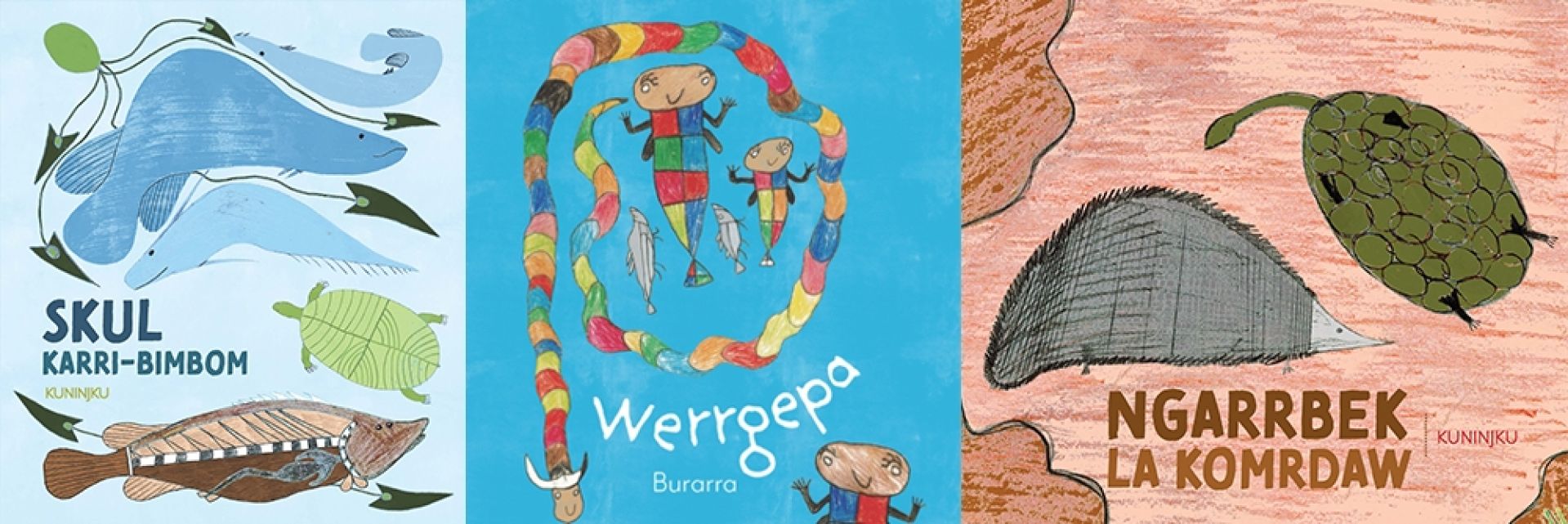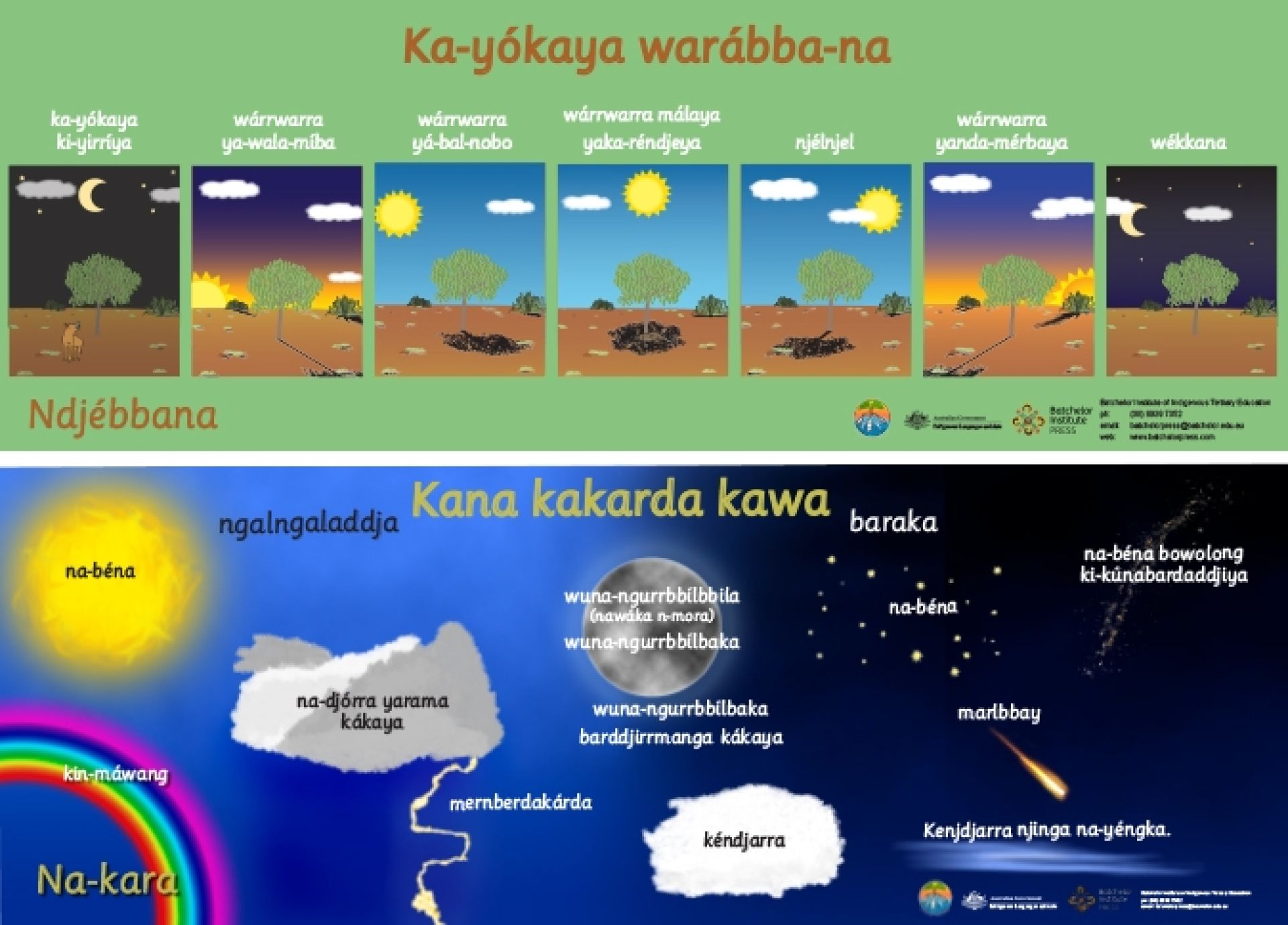

Batchelor Institute Press’s collaboration with the Lúrra Language and Culture Team at Maningrida College saw rich rewards recently with the publication of a series of books and posters for early learning and inclusion in the schools’ bilingual program.
Three Kuninjku language books were presented for revival: Yawkyawk (Mermaid), Ngarrbek La Komrdaw (Echidna and Long-necked Turtle) and Skul karri-bimbom (We painted the school). These were originally one-off handmade books developed in the early 1990s at the Marrkolidjban homeland school and feature inspired illustrations by the schoolchildren with text in the first language of their family.
The latest published versions make the old new again, enabling these ancestral stories to be available in the schools’ language program and celebrating the contributions the children’s grandparents made to the school’s bilingual program. The updated books were so well received in the community that a further two language groups (Ndjébbana and Burarra) decided to create versions in their first languages.
The project supported seven language groups living at Maningrida: Kuninjku, Burarra, Ndjébbana, Na-kara, Kune, Wurlaki and Djinang, ensuring all children at the school have the opportunity to learn in their ancestral and first languages. The staff at Maningrida schools were very happy with the books and all wanted to take them home ‘for their grandchildren’ to pass on their stories and ensure intergenerational transmission of their language and cultural knowledge.
Other resources produced include beginner readers and a series of bright, engaging posters on subjects ranging from the body, sky, numbers, time, the life cycle of a frog, and many more. The project was made possible with funding through the federal Indigenous Language and Arts program.
Visit Batchelor Press.

